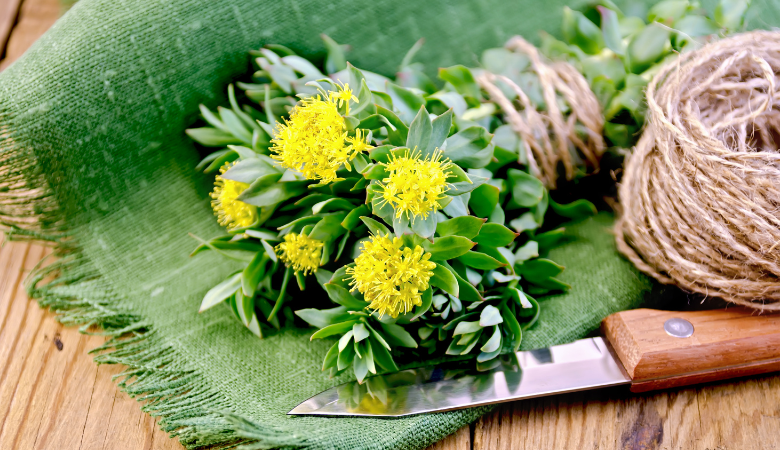
How Long Does Rhodiola Stay In Your System? (+ Shortening Tips)
|
|
Time to read 5 min
This store requires javascript to be enabled for some features to work correctly.
|
|
Time to read 5 min
Rhodiola, known for its brain boosting and stress-relieving benefits, is a popular choice for those looking to enhance cognitive performance. But how long does Rhodiola stay in your system?
The effects typically begin within 30 minutes and can last for 5-6 hours. The half-life of Rhodiola Rosea means it clears from your body in about 2-3 days, and there’s no need to worry about it showing up on a drug test.
In this article, we’ll explore how long Rhodiola Rosea lasts, how it works, and what to expect from this powerful nootropic. Let’s dive in!
Table of Contents
Rhodiola, an adaptogenic herb, offers benefits such as stress reduction, mood stabilization, and cognitive and physical performance enhancement.
The recommended dosage is between 288-680 mg per day, and it's important not to overdose.
Rhodiola’s effects are felt within 30-60 minutes and last for about 4-6 hours in the system.
Rhodiola rosea, or simply rhodiola, has a long history of use as a traditional adaptogenic herb.
Originating from the high-altitude regions of Europe, Asia, and North America, it has a long history of traditional use as a medicinal plant, particularly in Eastern European and Asian folk medicine.
This adaptogen is a staple in many nootropic stacks, though it is also used independently to enhance cognition, combat stress and fatigue, and boost energy levels.
Let’s take a peek at the potential benefits:
The optimal rhodiola dosage, often in the form of SHR-5 extract with 3% rosavins and 1% salidroside, falls within the range of 288-680 mg per day. This dosage is recommended for its anti-stress and cognitive-enhancing properties.
However, lower doses, as low as 50 mg daily, are effective for fatigue prevention. Keep in mind that higher doses don't necessarily yield better results and may even be ineffective.
Read "When to Take Rhodiola for Optimal Benefits (+Dosage Guide)" to learn more.
Rhodiola, being a water-soluble herb, boasts high bioavailability, meaning it absorbs quickly. You can expect to feel its immediate effects, which include a slight stimulatory boost, within 30-60 minutes after taking it. Rhodiola remains in your system for approximately 4-6 hours after consumption and is typically excreted within 2-3 days.
When taken within the recommended dosage, rhodiola has been found to have little to no known side effects.
However, it's crucial to remember that overdosing on any supplement, even an herbal one, can have adverse effects. Plus, there are safety issues regarding herbal supplements because they are not well-regulated in the U.S., so it’s incredibly important to choose a clean, high-quality supplement that’s third-party lab tested.
While rhodiola is effective as a standalone supplement, it may offer additional benefits when combined with other nootropic ingredients or adaptogenic herbs like ashwagandha for stress management.
Many people buy rhodiola in the form of nootrpoic stacks, which may contain other nootropic and adaptogenic herbs to offer balanced, full-spectrum benefits.
In conclusion, rhodiola is a standout adaptogenic herb renowned for its cognitive benefits and stress-relief properties. Whether you're striving to boost your focus while studying or manage everyday stress, rhodiola can be a safe and well-tolerated supplement.
It takes just 30 minutes for its effects to kick in and remains in your system for 4-6 hours before being fully excreted. For a comprehensive cognitive enhancement experience, consider a nootropic stack instead of a standalone supplement.
Lucid beverages contain a blend of brain-boosting nootropics + powerful mushrooms designed to unlock your brain's full potential so you can zone in on what's important.
Ready to become lucid? Check out our starter kit.
Rhodiola typically stays in your body for about 4 to 6 hours , depending on factors like metabolism and dosage. Its effects, however, may last longer, providing sustained cognitive and stress-relief benefits throughout the day.
The effects of Rhodiola can be felt within 30 minutes to 2 hours of consumption and usually last for 4 to 6 hours . Regular use may lead to cumulative benefits, improving mental endurance and reducing fatigue over time.
Taking too much Rhodiola may lead to side effects like dizziness, irritability, or excessive stimulation . High doses can also cause dry mouth, restlessness, or headaches in some individuals.
While Rhodiola is generally safe for most people, its downsides can include jitteriness , nervousness , or insomnia if taken in high doses or too late in the day. Some people may also experience gastrointestinal upset or headaches.
Rhodiola may interact with certain medications, particularly antidepressants , stimulants , and blood pressure medications . It’s important to consult a healthcare provider before mixing Rhodiola with these or any other medications or supplements.
Rhodiola is generally considered safe for heart health and may even help reduce stress-related cardiovascular strain. However, those with pre-existing heart conditions should consult their doctor before using it, as it can affect blood pressure and heart rate in some cases.
“Stress management and the role of Rhodiola rosea: a review” https://pubmed.ncbi.nlm.nih.gov/29325481/
“Multicenter, open-label, exploratory clinical trial with Rhodiola rosea extract in patients suffering from burnout symptoms” https://www.ncbi.nlm.nih.gov/pmc/articles/PMC5370380/
“Rhodiola rosea in Subjects with Prolonged or Chronic Fatigue Symptoms: Results of an Open-Label Clinical Trial” https://pubmed.ncbi.nlm.nih.gov/28219059/
“Rhodiola rosea L. Improves Learning and Memory Function: Preclinical Evidence and Possible Mechanisms” https://www.ncbi.nlm.nih.gov/pmc/articles/PMC6288277/
“Rhodiola rosea in Subjects with Prolonged or Chronic Fatigue Symptoms: Results of an Open-Label Clinical Trial” https://karger.com/cmr/article/24/1/46/67709/Rhodiola-rosea-in-Subjects-with-Prolonged-or
“Acute and chronic effects of Rhaponticum carthamoides and Rhodiola rosea extracts supplementation coupled to resistance exercise on muscle protein synthesis and mechanical power in rats” https://www.ncbi.nlm.nih.gov/pmc/articles/PMC7670727/
“Salidroside, A Natural Antioxidant, Improves β-Cell Survival and Function via Activating AMPK Pathway” https://pubmed.ncbi.nlm.nih.gov/29093682/
“Stress management and the role of Rhodiola rosea: a review” https://www.tandfonline.com/doi/full/10.1080/13651501.2017.1417442